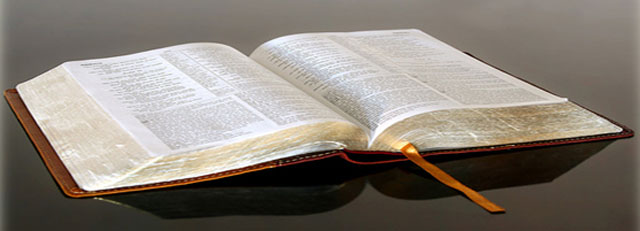Morning Message Text: John 5: 1-9
The Healing at the Pool
1 Some time later, Jesus went up to Jerusalem for one of the Jewish festivals.
2 Now there is in Jerusalem near the Sheep Gate a pool, which in Aramaic is called Bethesda and which is surrounded by five covered colonnades.
3 Here a great number of disabled people used to lie—the blind, the lame, the paralyzed.
5 One who was there had been an invalid for thirty-eight years.
6 When Jesus saw him lying there and learned that he had been in this condition for a long time, he asked him, “Do you want to get well?”
7 “Sir,” the invalid replied, “I have no one to help me into the pool when the water is stirred. While I am trying to get in, someone else goes down ahead of me.”
8 Then Jesus said to him, “Get up! Pick up your mat and walk.”
9 At once the man was cured; he picked up his mat and walked. The day on which this took place was a Sabbath,
Morning Message:
Do you want to get well? Seems like a silly question to ask someone. In today’s world I think it might be a legitimate question to ask of some. No one wants to be ill, but at the same time there are many in our society who would rather not be completely well. Now I am not pointing at anyone because I have no way of knowing how healthy or unhealthy someone might be. I do know that I see a lot of people struggle to work and make ends meet, fighting through pain and illness, because they have a work ethic. Let’s be honest today without pointing fingers; there are plenty of people in this country who choose to be ill, so they don’t have to work. Scripture tells us that if someone is not willing to work and carry their own weight, then they shouldn’t eat. That doesn’t sound very Christ like or does it. If we look closely at Jesus’ ministry we will find that Jesus encouraged his disciples to work and be responsible citizens.
I like taking a closer look at the Psalms because in them we hear the very real cries of people’s hearts. We need to listen and pay attention to the way that the Psalmist prays and speaks to God. “But you, Sovereign Lord, help me for your name’s sake; out of the goodness of your love, deliver me.” He starts by addressing God as Sovereign Lord; God is supreme in his life. He asks for help, not because of who he is or what he has done but because of who God is, because of God’s love for mankind. When we pray we need to remember that God loves us and he always wants what is best for us. It’s God’s love that heals us and saves us; we need to remember to call on that love and the very nature of God when we pray. Now listen to one more key to prayer. “For I am poor and needy, and my heart is wounded within me. I fade away like an evening shadow; I am shaken off like a locust. My knees give way from fasting; my body is thin and gaunt. I am an object of scorn to my accusers; when they see me, they shake their heads.” What is the Psalmist doing here in his prayer? He is humbling himself before God. In James 4: 6 we are told, “God opposes the proud but shows favor to the humble.” God knows what we want and need. He also knows our hearts and our attitudes. We have to learn to be truly humble and respectful before God, especially when we pray. God always hears our requests no matter how we approach Him, the question is will he respond.
Now Jesus is going to Jerusalem for a festival, and he is passing by the Sheep Gate. While the Sheep Gate is walled in today, in Jesus’ time it was an open passage, perhaps named due to its function of allowing shepherds to move their herds in and out of the city. Archaeologists have discovered a pool near the Sheep Gate, presumably the pool in this passage, which is fed by underground springs. The springs periodically would erupt and disperse sediment that apparently had a medicinal effect on those who were bathing. The pool was called Bethesda which means “house of mercy”; a fitting name for such a pool because those who gathered there needed healing. John calls the gathered ones astheneia, which is translated “without strength or power.” Spiritually and physically, the people had no strength and were in need of God’s mercy. The belief in that day was that occasionally an angel would come and stir the waters of the pool, and the first one to enter into the pool after the stirring would be healed. Jesus doesn’t ask the man if he wants him to help him into the pool. This poor man had no one to help him, this probably meant that his family had abandoned him, maybe just dropped him off by the pool and said good luck, we have done all that we can. Maybe after all of these years he had no family left. Jesus said; “Do you want to get well?”
My Bible, in the small print, makes the point that maybe his all-but-hopeless condition prompted Jesus to set his sights on him. Every person lying beside that pool needed healing, but this is the only person that we are told that Jesus approached that day. It says, and I thought this was worth repeating: “God makes forsaken individuals his highest priority.” Think about that for a moment, and let it sink in. When we are completely forsaken by the world, that’s when God makes us a priority. Jesus knew the answer to his own question; he wanted the man to verbalize his need. He didn’t do it perfectly because he should have said, “Yes Lord Jesus, please make me well.” But it was good enough for Jesus. You see, God isn’t looking for us to pray some perfect prayer, he is only wanting us to turn to him and ask honestly and genuinely for his help. The paralytic did not need just any man; he needed Jesus and so do we. Do you want to get well? My friend, Miss Milly, use to say, “You have to claim your healing.” I think what she really meant was you have to faithfully ask, believing that God can heal you. As God’s people we need to get well, not just physically but spiritually. Do you want to get well?
In Christ’s Love and Peace
Pastor Bob
Views: 0






